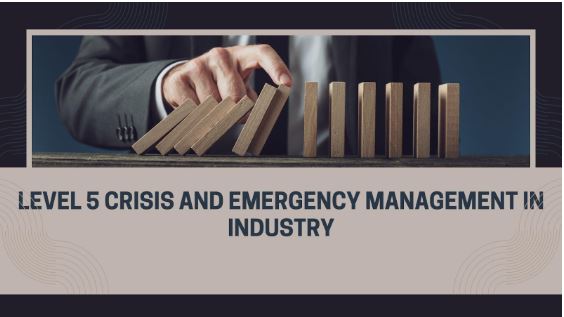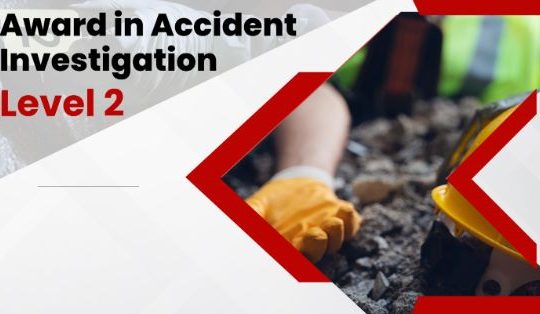
Level 5: Crisis and Emergency Management in Industry
Course Overview
The Level 5 Crisis and Emergency Management in Industry course is designed for professionals responsible for managing emergencies and ensuring organizational resilience during crises. This advanced qualification provides participants with the knowledge and tools to anticipate, plan for, and respond effectively to industrial emergencies, minimizing risks to people, property, and the environment. It combines theoretical concepts with practical strategies to prepare participants for leadership roles in crisis and emergency management.
Benefits
- Advanced Crisis Response Skills: Learn to manage emergencies with confidence and precision.
- Enhanced Organizational Resilience: Develop systems to ensure business continuity during crises.
- Compliance and Risk Mitigation: Gain expertise in legal and regulatory frameworks related to emergency management.
- Career Advancement: Open opportunities for leadership roles in crisis management and industrial safety.
- Practical Expertise: Equip yourself with real-world strategies for effective emergency planning and execution.
Learning Outcomes
Upon completing this course, participants will:
- Understand the principles of crisis and emergency management in industrial settings.
- Develop emergency response plans tailored to specific industry needs.
- Learn to assess and mitigate risks associated with potential crises.
- Gain expertise in managing communication during emergencies to ensure clarity and efficiency.
- Be equipped to lead post-crisis recovery efforts and evaluate response effectiveness.
Study Units
- Foundations of Crisis Management
- Definitions, principles, and importance of emergency management in industry.
- Understanding different types of industrial crises.
- Risk Assessment and Mitigation Strategies
- Identifying potential hazards and vulnerabilities.
- Implementing proactive measures to minimize risks.
- Emergency Preparedness and Planning
- Designing and testing emergency response plans.
- Allocating resources and responsibilities during crises.
- Incident Command Systems (ICS)
- Principles of effective incident management.
- Roles and functions within an incident command structure.
- Communication and Decision-Making
- Effective communication strategies during emergencies.
- Managing stakeholder and media relations during crises.
- Post-Crisis Recovery and Evaluation
- Strategies for business continuity and recovery.
- Evaluating response effectiveness and implementing lessons learned.
Career Progression
The Level 5 Crisis and Emergency Management in Industry prepares participants for leadership and strategic roles, including:
- Crisis Management Specialist: Oversee and execute organizational emergency responses.
- Emergency Planning Consultant: Develop and implement emergency plans for industrial settings.
- Health and Safety Manager: Lead safety initiatives and crisis response strategies.
- Risk Management Professional: Assess and mitigate risks associated with industrial operations.
- Incident Commander: Take charge during emergencies and ensure efficient resolution.
Our assessment process is designed to ensure every learner achieves the required level of knowledge, skills, and understanding outlined in each course unit.
Purpose of Assessment
Assessment helps measure how well a learner has met the learning outcomes. It ensures consistency, quality, and fairness across all learners.
What Learners Need to Do
Learners must provide clear evidence that shows they have met all the learning outcomes and assessment criteria for each unit. This evidence can take different forms depending on the course and type of learning.
Types of Acceptable Evidence
Assignments, reports, or projects
Worksheets or written tasks
Portfolios of practical work
Answers to oral or written questions
Test or exam papers
Understanding the Structure
Learning outcomes explain what learners should know, understand, or be able to do.
Assessment criteria set the standard learners must meet to achieve each learning outcome.
Assessment Guidelines
All assessment must be authentic, current, and relevant to the unit.
Evidence must match each assessment criterion clearly.
Plagiarism or copied work is not accepted.
All learners must complete assessments within the given timelines.
Where applicable, assessments may be reviewed or verified by internal or external quality assurers.
Full learning outcomes and assessment criteria for each qualification are available from page 8 of the course handbook.
Top Courses
No results found.
Related Courses
Let's Get in touch
Deleting Course Review
Course Access
This course is password protected. To access it please enter your password below:



